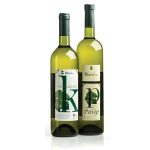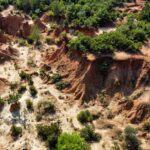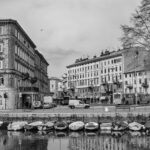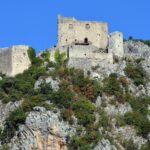If you’re like most people in Croatia, the name Bond, James Bond, conjures an image of a daring and impeccably suave British spy who is as quick with the trigger as he is with the ladies. For over forty years, eager throngs have waited in anticipation for one Bond film after another, drawn as much to the audacious antics of its title character as they are by the big blockbuster special effects, riveting chase scenes, trendy gadgets and luxurious automobiles, and the international film site locations that in recent years have countries and cities around the globe vying for a spot in the next Bond installation. While Croats have wondered how their country, with all it’s stunning medieval architecture and fortified cities and towns, was never featured in a previous Bond spectacle, I bided my time knowing that sooner or later Bond would return home to the country where his character was forged and where it all began. If you think I am delusional and have mistaken Croatia for Britain, pour yourself a strong cup of tea and do as the Queen would do – carry on and read on.
When it was announced earlier this year that the 25th Bond film, and the last in the franchise to feature Daniel Craig in the starring role was to start shooting in Dubrovnik and southern Dalmatia in early 2018, Croatians were ecstatic, and my interest was keenly piqued. In brainstorming what this could do for the Ministry of Tourism which was already experiencing an astronomical tourist year due to showstoppers like Game of Thrones and Star Wars, I could well imagine the billboards across Dalmatia jumping on the profit bandwagon with catchy slogans like ‘Welcome to Dalmatia, the Mediterranean as it once was. Shaken, not Stirred.” Humor aside, I was mostly intrigued because at about the same time as the announcement was made, I was in the process of trying to secure an interview with the son of Duško Popov (read about that in a future story), a Dubrovnik native and a man whom many consider a prototype for Bond as depicted in the novels by British writer Ian Fleming.
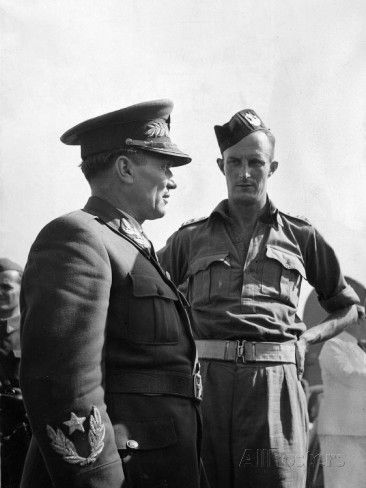
While Fleming himself drew upon his war-time experiences as a British agent during WWII, much of the inspiration for Bond is believed to have been derived from the personas of both Popov (an illustrious and well-known Belgrade born entrepreneur and M-16 double agent provocateur who lived out more than half his life in Dubrovnik and whom Fleming was acquainted with) and Sir Fitzroy Maclean, a dashing, daredevil and debonair Scotsman whom Fleming came to know of during his days with M-16 and who once called President Tito a close personal friend. Like Popov, Maclean was an honorary Dalmatian, having lived since the 1960s in a small villa on the island of Korčula which he and his wife Veronica could privately purchase at a time when foreign buyers on the Dalmatian coast were all but rare. Certainly, the friendship and alliance with Tito made the purchase possible, but the day trippers curiously traipsing about the medieval streets of old Korčula, gelato in hand, are barely aware about this unique kernel of Croatian history.
During my numerous visits and stays on Korčula, an island where a portion of my maternal family still lives, I’ve always been perplexed that most tour companies don’t mention the island’s connection to the man who inspired the character of Bond, and who lived right here in their midst. To the best of my knowledge the Maclean house, known as the Palazzo Boschi and located immediately next door to the Cathedral of St. Mark in Korčula’s main square, doesn’t bear any sort of historic plaque, nor is there any reference made of Maclean as the inspiration for Fleming’s later portrayal of Bond in the local tourist offices. Let’s hope that will change with the release of the next Bond installment (slated to hit theatres in 2020).
So, who was Sir Fitzroy Maclean? Born in 1911 in Cairo, Egypt, to Charles Maclean, a major in the British army, and Gladys Royle Maclean, he was raised in Scotland, India, and Italy and attended Eton (1924-28), the University of Marburg (1929), and Kings’ College, Cambridge (1929-32). He entered the Foreign Office in 1934 and was first posted to Paris, and then to Moscow in 1937 where he served as the Third Secretary in the British Embassy. Stalin’s purges were at their height during Maclean’s two years in the Soviet Union, and he was present at the state trial of Nikolai Bukharin in 1938. He also made journeys to remote areas of the Soviet Union and parts of Central Asia where few foreigners had ever stepped foot in. At the outset of war in 1939 he returned to London where he embarked on a career with the Foreign Office as a Russian affairs desk officer.
During World War II, Maclean, who was working as an army officer and cover British agent, was chosen along with a few select compatriots by Prime Minister Winston Churchill for an Allied operation targeting partisan and guerrilla units in the mountainous region of Yugoslavia. “Mr. Fitzroy Maclean, M.P., is a man of daring character, with Foreign Office training. He is to go to Yugoslavia and work with Tito. What we want is a daring Ambassador-leader with these hardy and hunted guerrillas,” stated Churchill. Described by his contemporaries as a tall, handsome, imposing, and energetic figure, Maclean parachuted into Yugoslavia in the summer of 1943 while it was still occupied by the Germans. He went on to work with Tito and was widely credited with a substantial role in Winston Churchill’s decision to back Tito instead of Draža Mihajlović, the leader of the Četnik faction.
Describing his time with Tito and the Yugoslav Partisan movement, Maclean once said, “To some people, my life might seem one long adventure holiday, blowing up forts in the desert, clandestinely parachuting into guerrilla wars, penetrating forbidden cities deep behind closed frontiers.” He later went on to pen two autobiographies about Tito in which his admiration for Yugoslavia’s war-time leader and later President is abundantly evident, as was his admiration for the people of Yugoslavia and Croatians in particular.
At the wars end, Maclean returned to Britain where he was a long-time Conservative Member of Parliament, Parliamentary Undersecretary of State for War, and a traveler and author of a plethora of books. His autobiography, Eastern Approaches, published in 1949 describes his travels in Central Asia and the Soviet Union during the 1930s and his wartime adventures in Yugoslavia during WWII.
His friendship with Tito would continue throughout his life and right up until the President’s death in 1980. When the Homeland War broke out in the early 1990s, Maclean and his wife Veronica were visiting family in Scotland. Saddened and distraught, they made one of the first mercy missions into war-torn Yugoslavia, steering a truck with medical supplies through Bosnia to their beloved island of Korčula, which Fitzroy had liberated during WWII with Tito and where the Macleans still owned a property. He was 81-years old at the time and still the gallant daredevil.
Following Maclean’s death, his son Charles bequeathed a series of private papers and correspondence between his father, President Tito, and other global dignitaries, to the University of Virginia. Among the more interesting and curious artifacts within the files are letters dating from the 1990’s war to Lord David Owen and academic Stevan Dedijer about the Korčula Emergency Appeal, a relief effort for a hospital on the island which was organized by Maclean and his wife Veronica.
Sir Fitzroy Maclean passed away in 1996 at the age of 85, while visiting friends in Hertford, England. At the time he was living at Strachur House, the Maclean family’s ancestral home in the Scottish county of Argyll. His wife Veronica survived him by another nine years, passing away in early 2005 at the age of 84. Their love and association with Korčula, while perhaps unknown to the tourist hordes, is well-known among the locals who fondly recall Veronica Maclean’s affection for rakija, a drink she once famously quipped should be sipped only after being “shaken, not stirred.”
To see a photo of Maclean on Korčula in 1943, click here.


